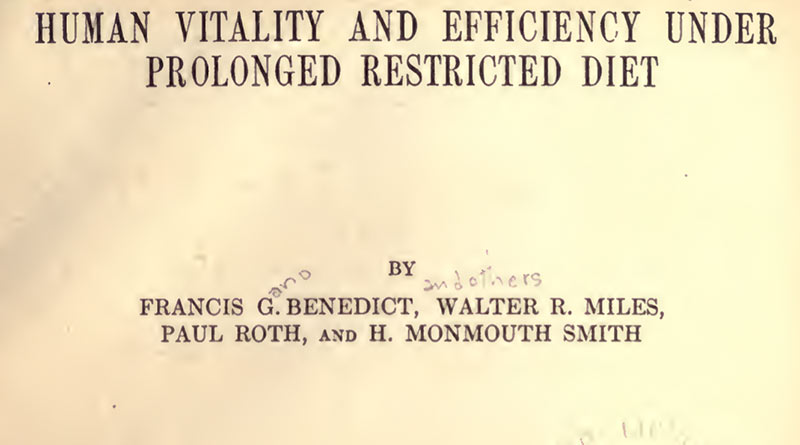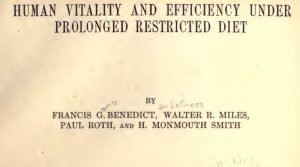The Benedict weight loss study (1917) – Zoë Harcombe

Executive summary
* This is the second of a two part note looking at metabolism.
* Benedict is credited as the first person to study the impact of a calorie deficit in human beings (1917).
* Benedict’s research took place during World War I, just as the Ancel Keys Minnesota Starvation Experiment took place during World War II. Both researchers were driven to understand the possible impact of food rationing and calorie deficit during war times.
* Benedict et al recruited 12 normal weight, healthy men. They set out to achieve a weight reduction of 10% and then to try to maintain the lower weight for some weeks.
* The key research question was – if we lower weight by 10%, will metabolism be 10% lower? The researchers found that the average 12% reduction in body weight achieved led to an average 33% reduction in calories required.
* There were many other significant findings related to heat output, blood pressure, pulse rate and a measure of lean tissue.
* Perhaps the main lesson for would-be calorie counters was that all men except one ended the experiment heavier than he started.







